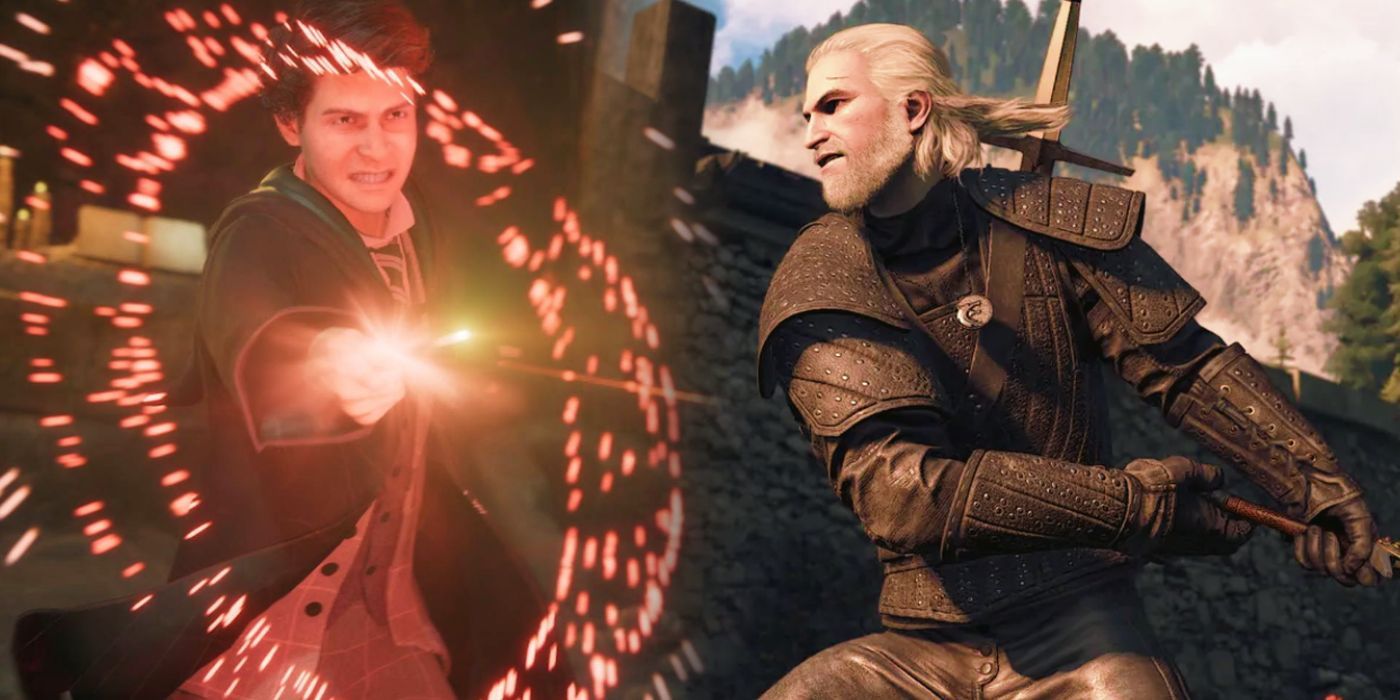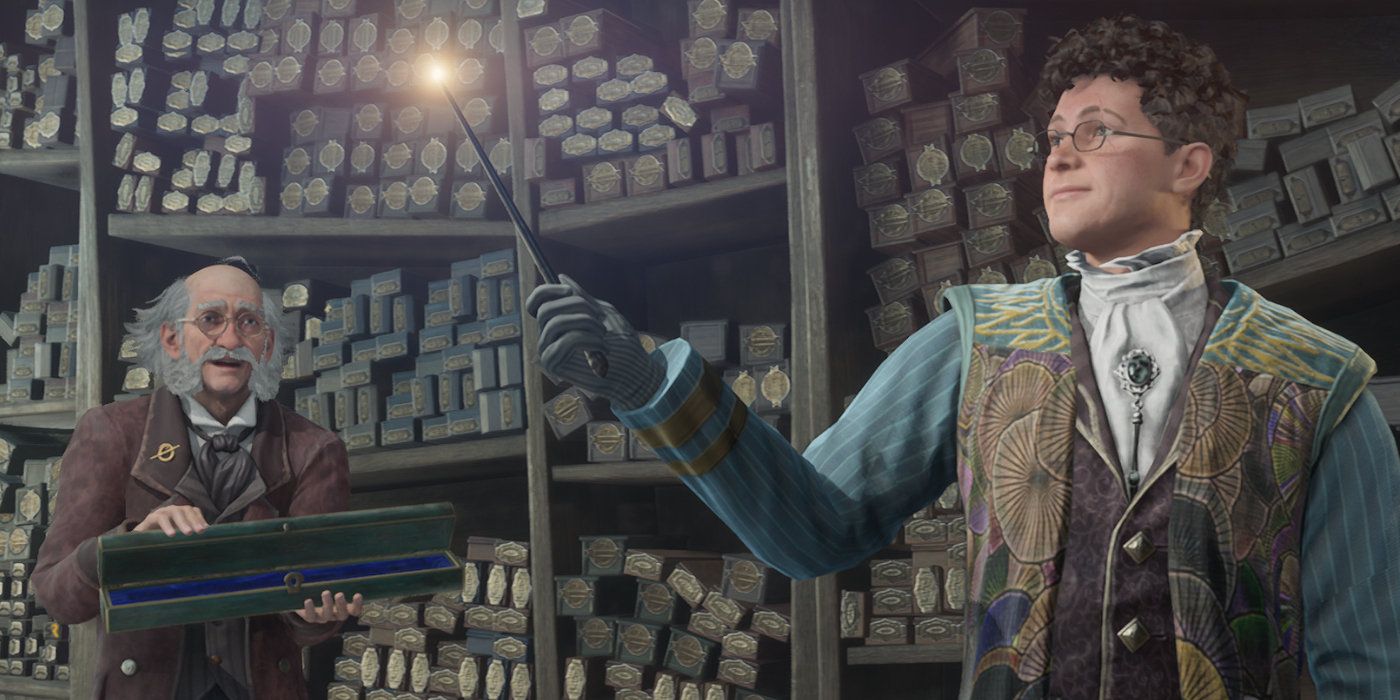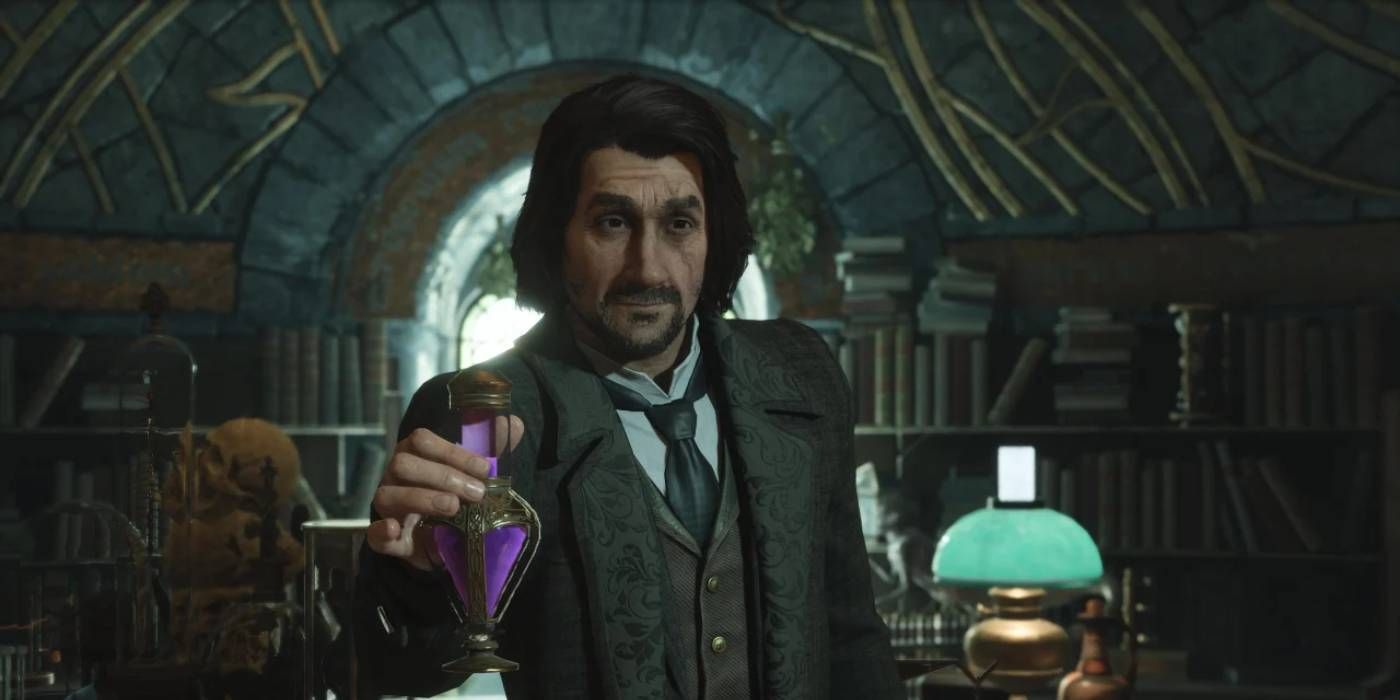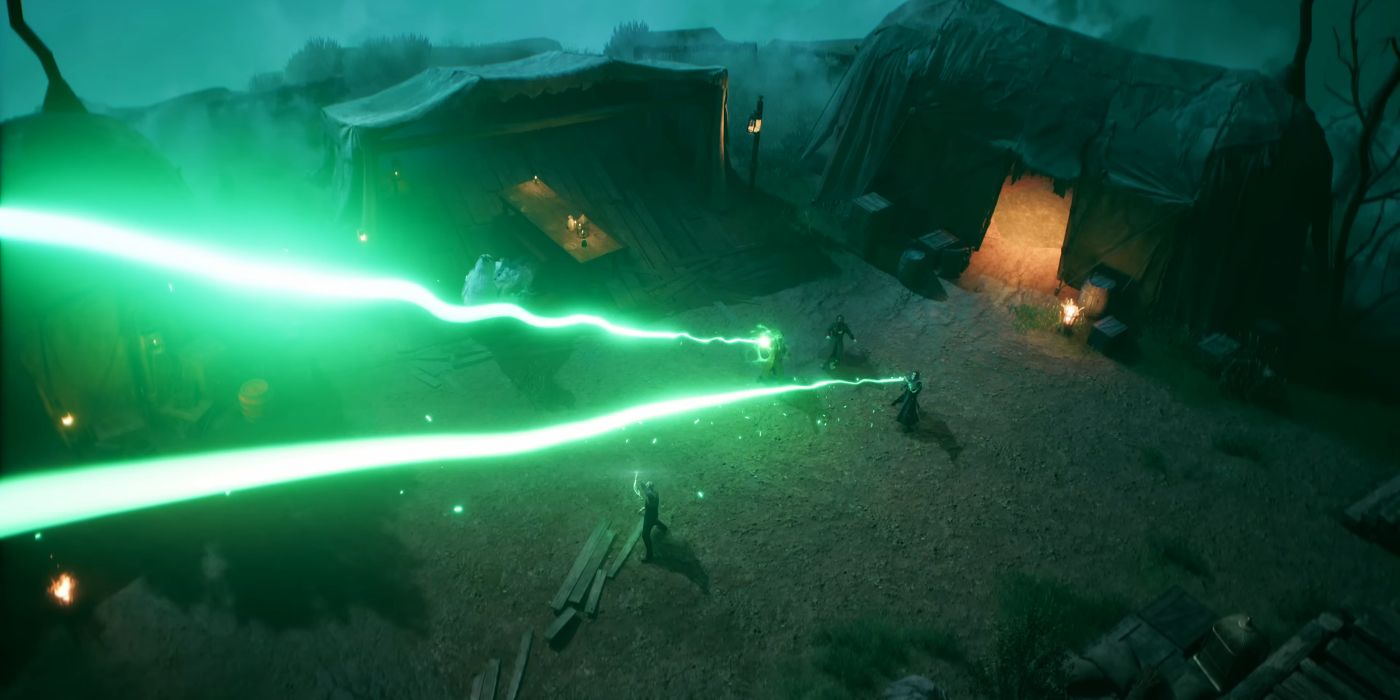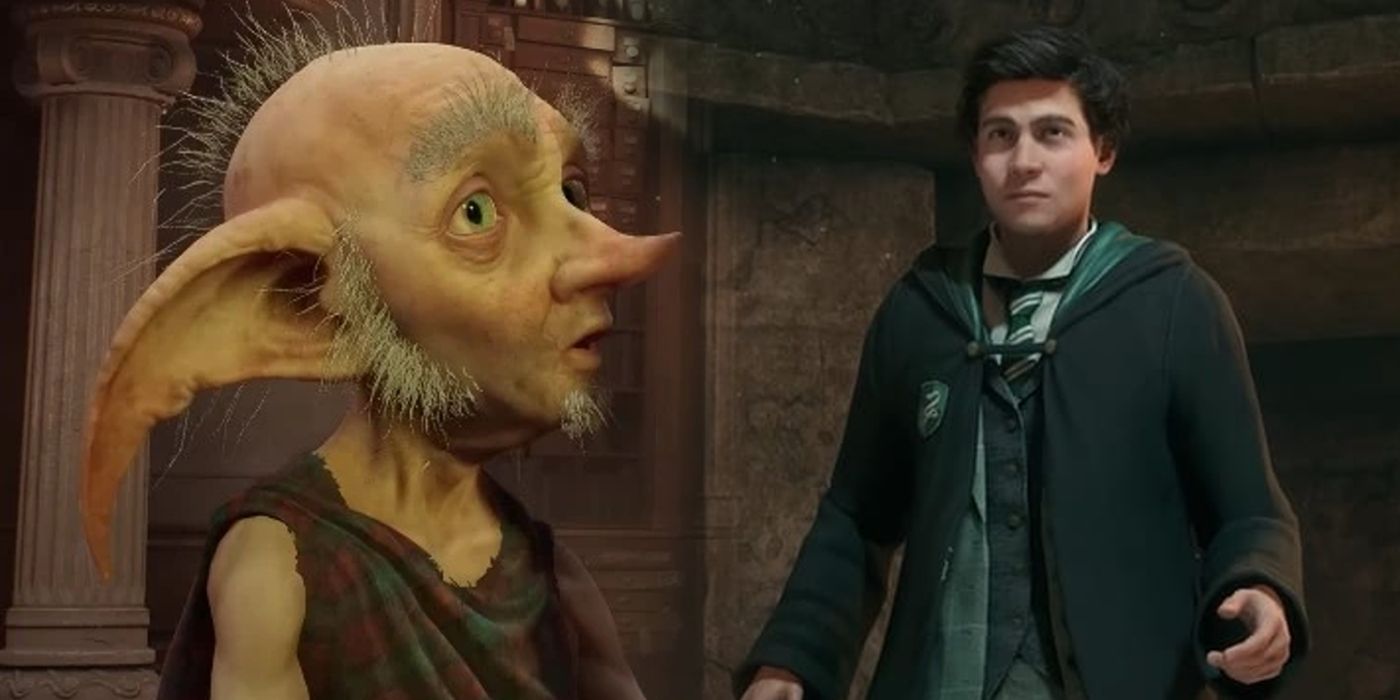For the most part, it seems that Hogwarts Legacy has lived up to the expectations of witches and wizards, but the game could still take some lessons out of The Witcher 3: Wild Hunt's book. The latter is one of the most critically acclaimed RPGs of all time, and although it's thematically quite different from the Harry Potter prequel, it can offer some valuable insight into how the game can become an even more magical experience than it currently is.
Luckily, Hogwarts Legacy already shares quite a few similarities with The Witcher 3. Both games feature an expansive, open-world map full of places to explore and people to meet, several talent trees that pertain to specific abilities and attributes, and a complex combat system that uses magic - although Hogwarts Legacy gameplay involves a customizable wand instead of mutant Witcher abilities. That being said, there are numerous ways in which the two RPG titles differ, and not all of these contrasts benefit Portkey Games' latest release.
Casting Spells Shouldn't Limit Movement In Hogwarts Legacy
Revelio is one of the first spells that the protagonist will learn in Hogwarts Legacy, and it's an invaluable tool that they'll use hundreds (if not thousands) of times before they complete the game. Its ability to scan the surrounding area for objects and points of interest is almost identical to Geralt's Witcher senses in TW3, but the latter has a sizable advantage in that players can use this ability without ever being restricted, movement-wise. Geralt can continually use his Witcher senses while running around the map, but Hogwarts Legacy's students are forced to stop moving and stand in place to use Revelio.
Brooms are actually an exception to this rule, and you can cast Revelio while flying, a tip that many don't realize about broomsticks in Hogwarts Legacy. However, since Revelio is used more often on foot than in flight, constantly having to stand still can quickly become annoying for even the most patient Hufflepuff students. If Portkey Games were to tweak this spell to work more like The Witcher 3's Witcher senses, even if it didn't adopt the infinite active time and massive range, this quality-of-life change would be a welcome one.
Hogwarts Legacy Should Have A Better Potion Selection
Potion-making is nearly synonymous with wizardry and witchcraft, and yet The Witcher 3 has a much larger variety of potions to brew than Hogwarts Legacy. During his adventures through the Continent, Geralt can brew dozens of different alchemic brews, including regenerative potions, decoctions that deal extra damage to certain enemies, and even substances like Black Blood, which literally make him toxic to his opposition. On the other hand, only seven different potions in Hogwarts Legacy can be brewed, and although they're each quite useful, they are sorely lacking the complexity of TW3's alchemy system.
It's unfortunate that potion-making boils down to a simple press of a button after students take Professor Sharp's class, but this oversimplification could be remedied somewhat by adopting the same enemy-specific decoctions that The Witcher 3 features. It wouldn't have to cover every foe in Hogwarts Legacy, but simply including potions for goblins, Inferni, and spiders, for example, would make spice things up considerably. Currently, in Hogwarts Legacy, almost all the available potions are used for defensive purposes, and so it would be interesting to see how more offensive potions come into play.
Hogwarts Legacy's Dark Wizards Should Have A Poor Reputation
In The Witcher 3, citizens make their disdain for Witcher Geralt quite plain. He's often insulted or spat on simply for passing through an area, even though his only goal is to protect people from harmful creatures. In Hogwarts Legacy, players can become dark wizards if they please, and they can go as far as to torture or kill other people for their benefit, but somehow, their reputation will remain largely intact. This agreeability is completely out of place in the wizarding world, and TW3 proves that being disliked isn't always a negative thing.
Canonically, using any of the Unforgivable Curses will cause a witch or wizard to be shunned from society and imprisoned for life in Azkaban. In Hogwarts Legacy, though, players are barely reprimanded for their use of this twisted magic. The student's companions and a couple of NPCs may make the odd comment about it, but they won't ever abandon the player or confront them. This can make the game feel insincere and choices feel irrelevant, especially for those who actually wanted to become a public enemy.
On the other hand, TW3 exemplifies how notoriety can be a strong storytelling device, and how Hogwarts Legacy's story failed in this. It's usually unjustified hatred in Geralt's case, but regardless, it can feel uncomfortable to interact with NPCs. Often, players may overcompensate for the Witcher's poor reputation by being extra cautious or kind. In other words, they'll begin to feel more defensive of Geralt, and more connected to his story. Hogwarts Legacy could benefit from such progression to the game's otherwise cookie-cutter protagonist, who remains stagnant throughout the plot.
Hogwarts Legacy's Side Quests Should Be More Engaging
Another way that Hogwarts Legacy could learn from The Witcher 3 is by following the latter's example in terms of side quests. One of its greatest strengths is the many unique secondary missions that it offers players, from things as inconsequential as fixing a shrine to events as momentous as killing a king. Unfortunately, this is where Portkey Games' title is lacking. Many of these extra missions, such as the Field Guide Pages challenge in Hogwarts Legacy, or Mr. Moon's quest involving Demiguise statues, are simply fetch quests with altered dialogue, or collection quests that purposefully maximize the amount of time a player spends in-game.
By taking The Witcher 3's example and incorporating unique side quests with engaging stories, students will feel much more enthusiastic about completing all the game's activities. Including more potion options, allowing players to gain a bad reputation, and not restricting their movement while using Revelio would have a similar impact on the title as a whole. Of course, Hogwarts Legacy is fundamentally much different than TW3, so it should not aim to become a carbon copy of the beloved monster-hunting RPG, but it could certainly use some of its most successful features as inspiration for future changes and updates.
Source: Hogwarts Legacy/YouTube
Editor’s Note: Harry Potter creator J.K. Rowling has been accused of transphobia by those in the LGBTQ+ community. Although not directly involved in the development of Hogwarts Legacy, Rowling does stand to earn royalties from the game. We would like to reiterate our support for trans rights and that trans identities are valid. Support services are listed below for trans people impacted by discussions of transphobia.
In the USA:
- Trans Lifeline: (877) 565-8860
- The Trevor Project: 1-866-488-7386
In Canada:
- Trans Lifeline: (877) 330-6366
- Youth Line: 1-800-268-9688
In the UK:
- Switchboard: 01273 204050
- Mermaids: 0808 801 0400

